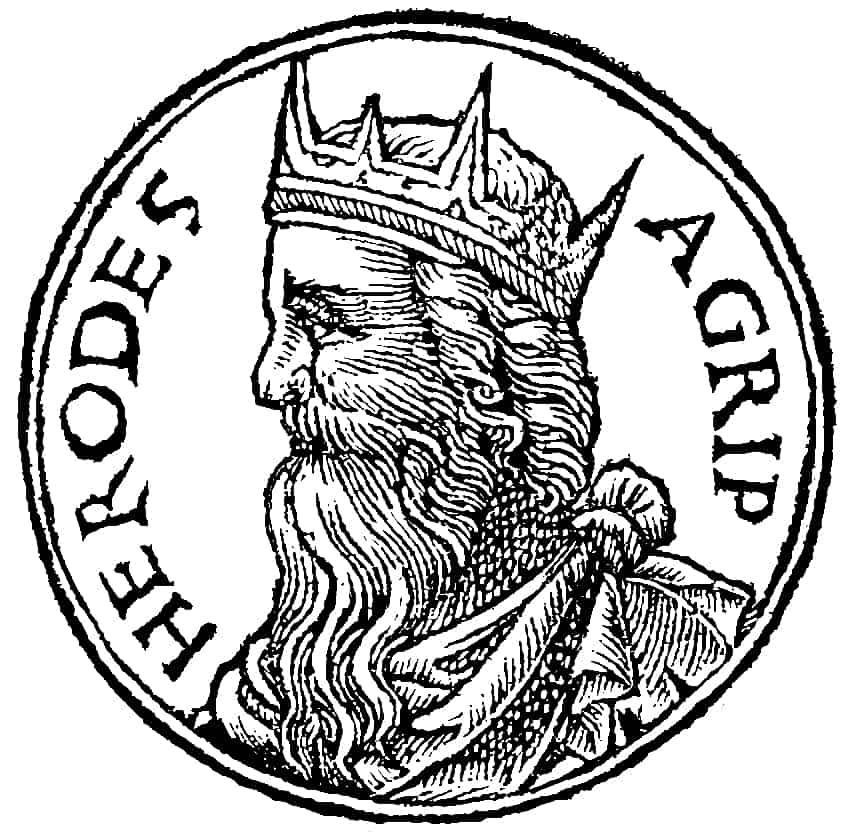Agrippa I (born Marcus Julius Agrippa) 11 or 10 BC – March 44) was the last king of Judea, a Roman Jew and a descendant of the Herod family. Thanks to his good connections and proximity to the emperors of the Julio-Claudian dynasty, he was able to reunite the kingdom of his grandfather Herod under Jewish rule.

Herod Agrippa was probably born in Judea. He was the grandchild of King Herod the Great, and Mariamne I. Agrippa was named after Marcus Vipsanius Agrippa, who was the son-in-law of Caesar Augustus and the ruler of the East on his behalf. Therefore he had close ties with Herod the Great. At age three, he was orphaned from his father, Aristobulus, after Herod the Great executed him for conspiring against him.
Agrippa’s family was under the protection of Herod the Great. But his mother, Berenice, decides to relocate her family to Rome in 5 BCE. While in Rome, Herod Agrippa got his upbringing in the imperial court as was customary with monarchs of Rome’s protectorate. So there is a reason to believe that Augustus considered Agrippa and his brother heirs to the throne.
More About Herod Agrippa
Herod Agrippa I was taken under the tutelage of the young Antonia, who was one of the most prominent women during the early imperial period and was educated together with her son Claudius (later the Roman emperor) and with Drusus, the son of Tiberius, who were his age and became his closest friends.
After Bernice’s death, around the year 23, Agrippa began to live an extravagant life that caused him to sink into heavy debt. At that time, he married his cousin Kypros, the daughter of Shlomzion (sister of Aristobulus, his father), and Phatazel, Son of Phatazel.
Sinking in debt led Agrippa to return to Judea, probably between the years 28-30. At first, he probably lived in Edom, where he planned to commit suicide from a tower, but his wife sent letters to his sister Herodias, who was married to her uncle Herod Antipas Tetrarch of Galilee, in which she asked for their help. Herodias and Antipas accepted the request, and Agrippa was Tiberias’s Agronimus (market supervisor). It was a remarkable fall in the status of Agrippa, who was used to walking like a household member among the worldly leaders in Rome and was now a junior official working for a junior governor in a small and insignificant province, and this was probably the reason why he did not get along in his new job and left shortly after.